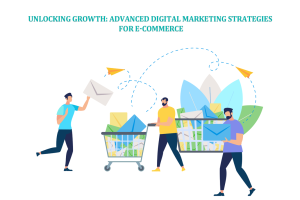
Starting an e-commerce business in your twenties or thirties feels a little like moving into your first apartment. You’re excited, a bit nervous, probably underestimating the plumbing, and wildly overestimating your Wi-Fi. But here’s the thing—you’ve got energy, flexibility, and digital instincts that older entrepreneurs have to pay consultants to teach them. You can build something lean, smart, and scalable if you get your steps in order. The trick is resisting the urge to skip ahead. Every piece, even the annoying ones, plays into whether or not your venture lasts longer than a trending TikTok sound. Let’s walk through the essentials.
Start with real market research
You might have a killer product idea, but if no one’s searching for it or talking about it or clicking ads about it, you’re setting fire to your free time. Before you buy a domain name or sign up for that snazzy e-commerce platform, put your energy into conducting market research. That means identifying your ideal customer, stalking your competitors (legally), and seeing what gaps exist. The goal isn’t just to validate your idea—it’s to shape it. You may think you’re launching organic dog treats, but your research might show higher demand for subscription boxes. Adapt now or pay for the lesson later.
Boost your acumen with education
If you’re feeling uncertain about operations, strategy, or leadership, you don’t have to wing it. Earning a bachelor of science in business management can help build a stronger foundation while you grow your venture. A business management degree touches on essentials like project planning, organizational leadership, and resource optimization—skills you’ll use daily. Plus, if you choose an online format, you can keep building your business while earning your degree. You don’t have to wait for “someday” to become the kind of founder investors and customers trust. Start filling your knowledge gaps before they cost you.
Write the business plan—no exceptions
You don’t need a 60-page manifesto, but you do need a living document that outlines your vision, costs, goals, and growth plan. People love to skip this because they think business plans are relics from the fax machine era. They’re not. A solid plan gives your ideas structure and helps you make smart decisions faster. It’s also essential if you ever need a loan or investor. If you’re unsure where to begin, follow a framework for writing a business plan that includes your value proposition, budget estimates, and marketing approach.
Choose the right legal structure
Now for the paperwork people avoid until it’s too late. You’ll need to decide how your business is legally structured—sole proprietorship, LLC, S Corp, whatever fits your risk tolerance and tax goals. This part isn’t sexy, but it can save you from lawsuits or tax drama later. A lot of young entrepreneurs get caught in handshake deals and vague arrangements. Don’t be that person. Get the setup right and protect yourself. Here’s a clear breakdown for choosing a business structure based on your needs and vision.
Pick the platform that fits your vibe
You don’t need to code a site from scratch or overthink your tech stack on day one. Focus on finding a clean, user-friendly e-commerce platform that works well with your product type and growth plan. Whether you’re selling drop-shipped gadgets or handmade ceramics, there’s a platform that fits. Think about built-in SEO, mobile optimization, payment integration, and customer support. Take a minute to look through a list of the best ecommerce platforms for small business to make sure you’re not leaving money on the table. Pick smart now so you don’t have to migrate everything later.
Get your marketing strategy in shape
You don’t need to master every channel at once, but you do need a strategy. That means understanding where your audience lives online, what messages resonate, and how to convert interest into purchases. Don’t fall for the myth that good products sell themselves. They don’t. Brands that thrive invest early in storytelling, visuals, and repeatable campaigns. If this sounds abstract, look at the basics of developing a marketing strategy to understand how to test, track, and optimize without feeling like a full-time influencer.
Learn how to manage money like a grown-up
Cash flow is not a vibe, it’s a lifeline. Too many e-commerce businesses crash because their founders treat profit like a surprise bonus instead of part of the plan. From inventory and software to taxes and shipping, your money needs to be mapped and managed. Set up basic systems, track your numbers weekly, and don’t rely on your bank account balance to tell you how you’re doing. If budgeting feels overwhelming, here’s a no-nonsense guide to managing small business finances that’ll keep you from making avoidable mistakes.
You’re in the perfect stage of life to bet on yourself. Not recklessly, but courageously. Launching an e-commerce business doesn’t mean quitting your job tomorrow or living on caffeine and TikToks. It means building slowly, learning constantly, and staying adaptable. Every founder remembers their first sale, but the smart ones also remember their first mistake and built stronger systems because of it. Give yourself permission to be messy, but don’t let that be an excuse to skip the important stuff. This is your first business, not your last—make it a good one.
Image by Freepik
Discover the latest in digital marketing and tech innovations at Web Review Star, your go-to source for expert insights and strategies to elevate your business success!






